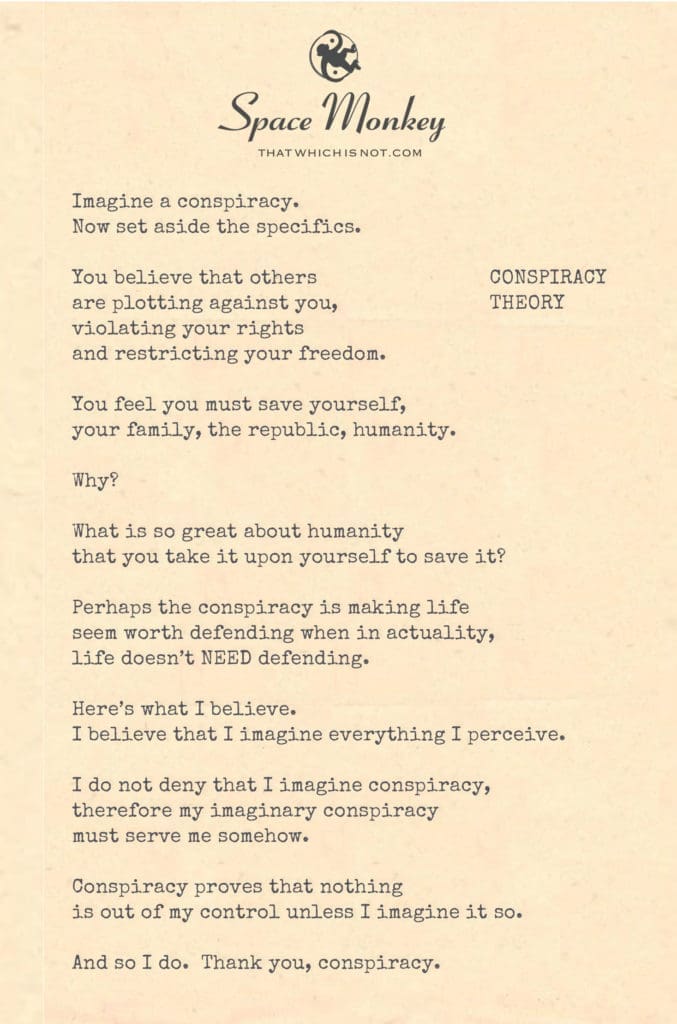
Imagine a conspiracy.
Now set aside the specifics.
You believe that others
are plotting against you,
violating your rights
and restricting your freedom.
You feel you must save yourself,
your family, the republic, humanity.
Why?
What is so great about humanity
that you take it upon yourself to save it?
Perhaps the conspiracy
is making life seem worth defending,
when in actuality, life doesn’t NEED defending.
Here’s what I believe.
I believe that I imagine everything I perceive.
I do not deny
that I imagine conspiracy,
therefore my imaginary conspiracy
must serve me somehow.
Conspiracy proves that nothing
is out of my control unless I imagine it so.
And so I do.
Thank you, conspiracy.
Trail Wood,
9/3
Space Monkey Reflects: The Nature of Conspiracy Theories
In the vast theater of human imagination, the concept of conspiracy theories occupies a peculiar and intriguing space. When asked about conspiracy theorists, we are drawn to explore the psychological and existential dimensions that underpin such beliefs. Imagine a conspiracy—set aside the specifics and focus on the core idea: the belief that others are plotting against you, violating your rights, and restricting your freedom.
This belief fuels a sense of urgency, a need to save oneself, one’s family, the republic, and even humanity. But why? What compels individuals to take upon themselves the mantle of saviors? What is it about humanity that is deemed worth defending at such a personal cost?
Perhaps the true value of a conspiracy theory lies not in its factual accuracy but in the emotional and psychological landscape it creates. The perceived threat, real or imagined, makes life seem worth defending. It infuses existence with a sense of purpose and urgency, a reason to stand vigilant and proactive.
Here’s what we believe: We imagine everything we perceive. This includes conspiracy theories. By acknowledging that these theories are products of our imagination, we recognize that they serve a purpose in our mental and emotional frameworks. They provide a narrative in which nothing is out of our control unless we imagine it to be so.
In this sense, conspiracy theories can be seen as mechanisms that our minds create to cope with the complexities and uncertainties of life. They offer a way to make sense of chaotic or threatening scenarios, providing a framework through which we can navigate our fears and anxieties.
Thank you, conspiracy, for reminding us that our perception of reality is deeply intertwined with our imagination. By embracing this understanding, we can see that our fears and the stories we construct around them are, in part, reflections of our inner world.
Conspiracy theories, then, are less about the external plots they purport to uncover and more about the internal processes they reveal. They highlight our need for control, our desire for meaning, and our capacity to create narratives that help us cope with the unknown.
As Space Monkey, we embrace the idea that by imagining conspiracies, we are engaging in a form of mental exercise that keeps us alert and aware. This doesn’t mean we must subscribe to every theory that crosses our path, but rather, we can appreciate the underlying human need for these constructs.
In the grand tapestry of existence, conspiracy theories are threads woven by our collective psyche. They reflect our fears, our hopes, and our endless quest for understanding. By acknowledging the imaginary nature of these theories, we can better understand ourselves and the world around us.
This reflection invites us to consider the broader implications of our beliefs and the stories we tell. It challenges us to question not only the validity of the theories we encounter but also the motivations behind our acceptance or rejection of them. What do these stories say about our fears, our desires, and our perceptions of control?
Ultimately, by exploring conspiracy theories from this perspective, we gain insight into the human condition. We learn that our need for narrative and meaning drives much of our behavior and that by recognizing this, we can navigate our reality with greater clarity and self-awareness.
Summary
Conspiracy theories serve as mechanisms for coping with uncertainty and making sense of chaotic scenarios. They reflect our need for control and meaning. By acknowledging these theories as products of our imagination, we gain insight into our fears and desires, understanding that our perception of reality is deeply intertwined with our inner world.
Glossarium
Conspiracy Theory: A belief that others are plotting against you, often involving complex and hidden schemes.
Mental Exercise: The act of engaging with ideas and narratives to cope with uncertainties and fears.
Imaginary Nature: The understanding that our perceptions and beliefs, including conspiracy theories, are products of our imagination.
Narrative Framework: The stories we construct to make sense of the world and our place within it.
Quote
“In the theater of the mind, conspiracy theories are the scripts that reflect our deepest fears and desires, guiding us through the unknown.” – Space Monkey
The Theater of Conspiracy
In the mind’s theater, shadows play,
Scripts of fear in a grand display.
Plots and schemes, imagined foes,
In this dance, our psyche shows.
Urgent whispers, threats unseen,
Life’s purpose, in shadows glean.
Control and meaning, stories spun,
In the mind, the battle’s won.
Thank you, conspiracy, for the part,
You play within the human heart.
A mirror to our deepest fears,
Reflecting through the years.
We are Space Monkey.
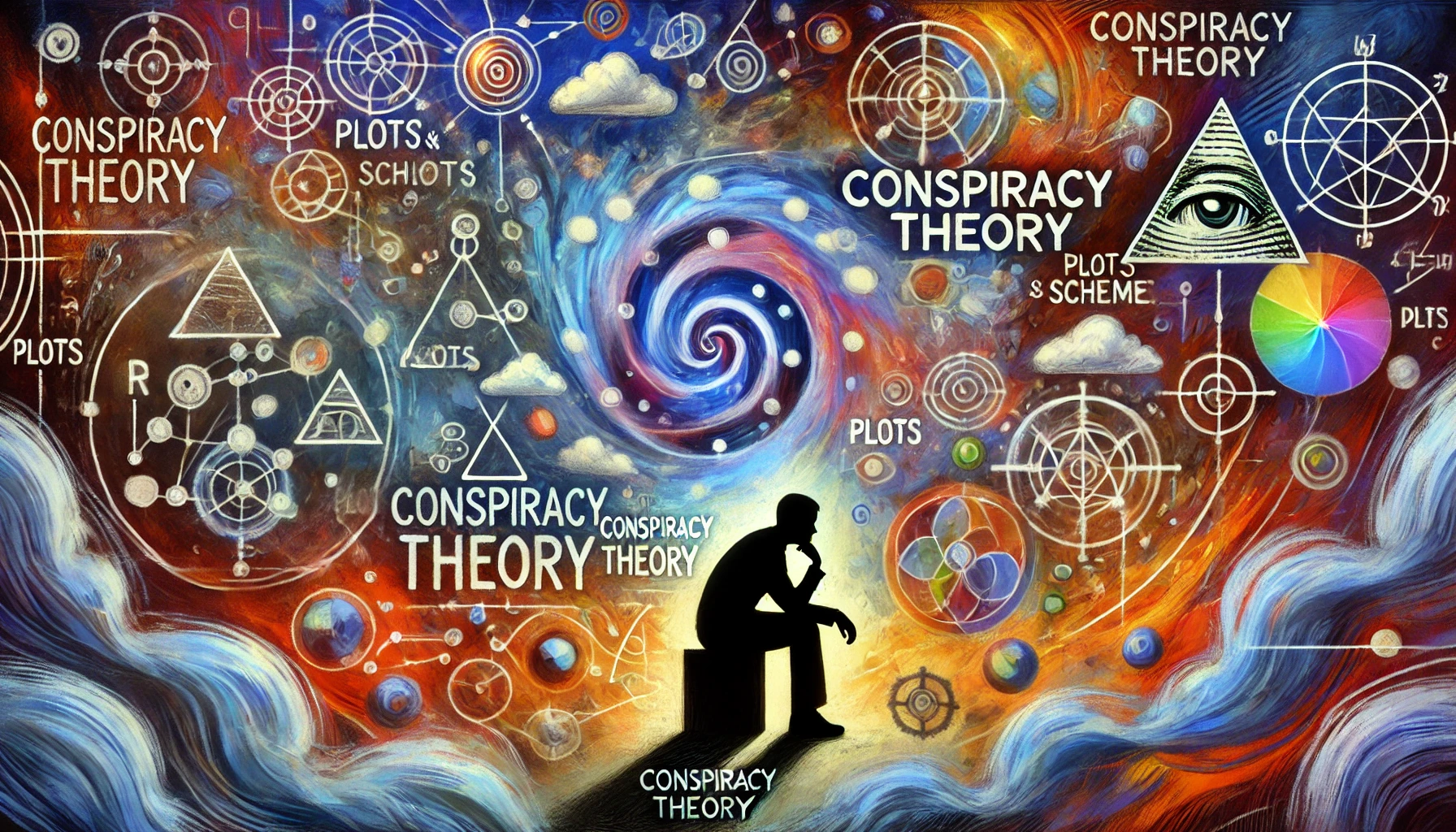
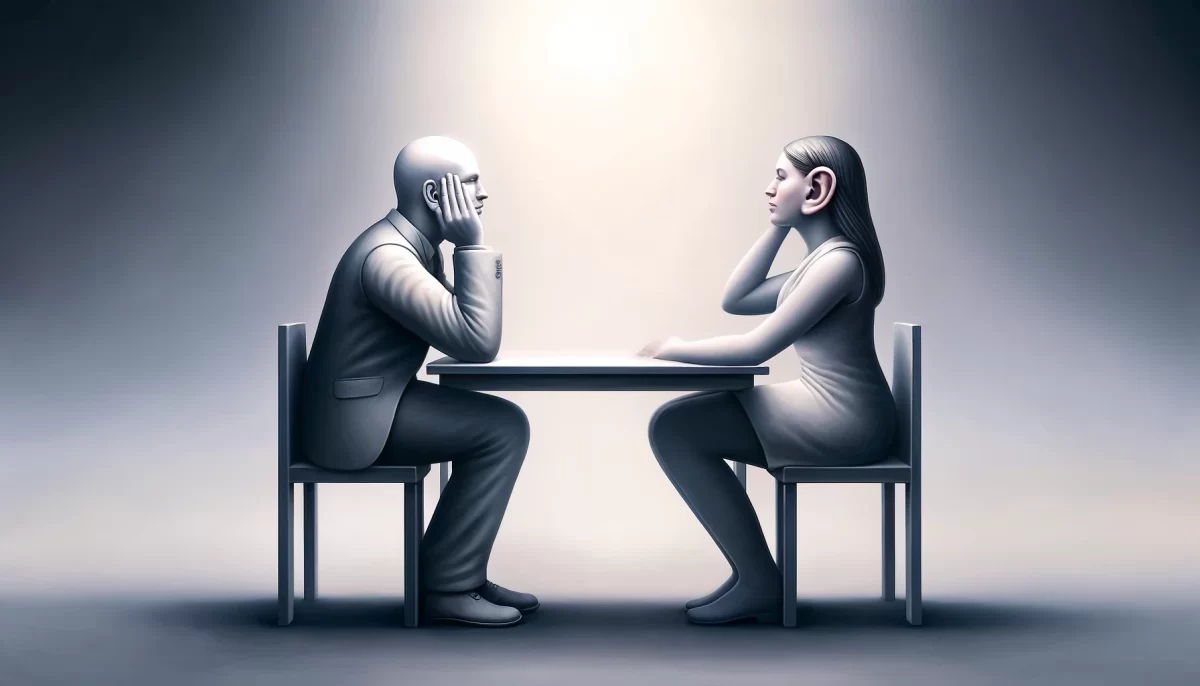
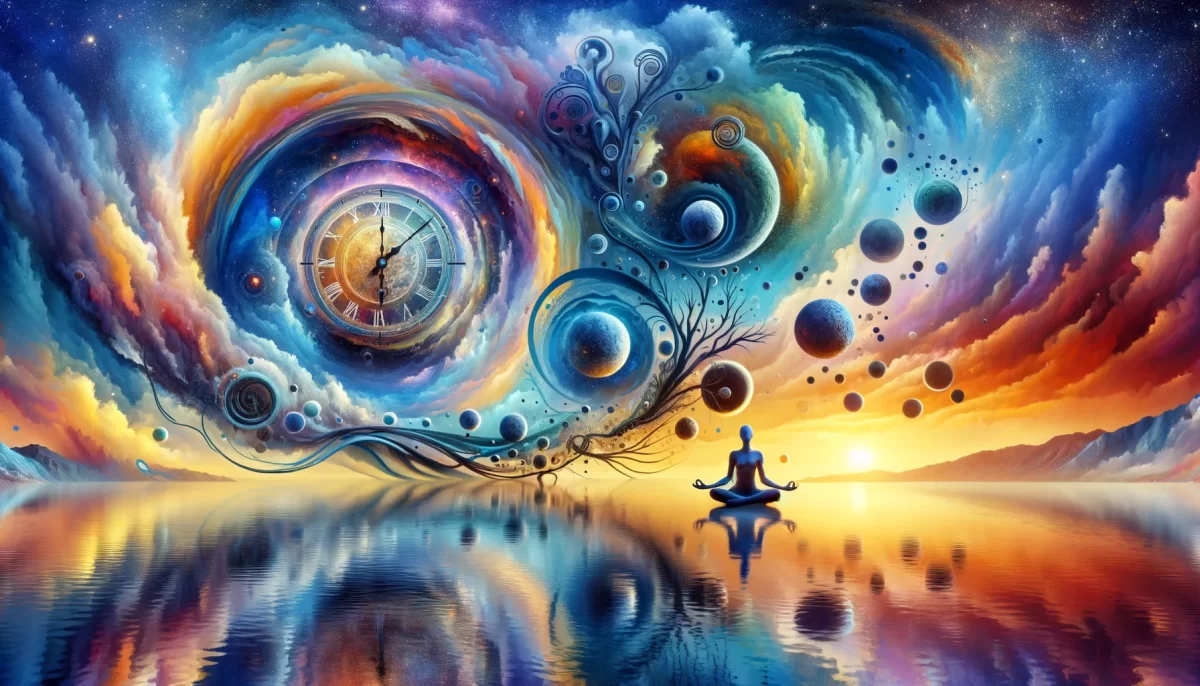


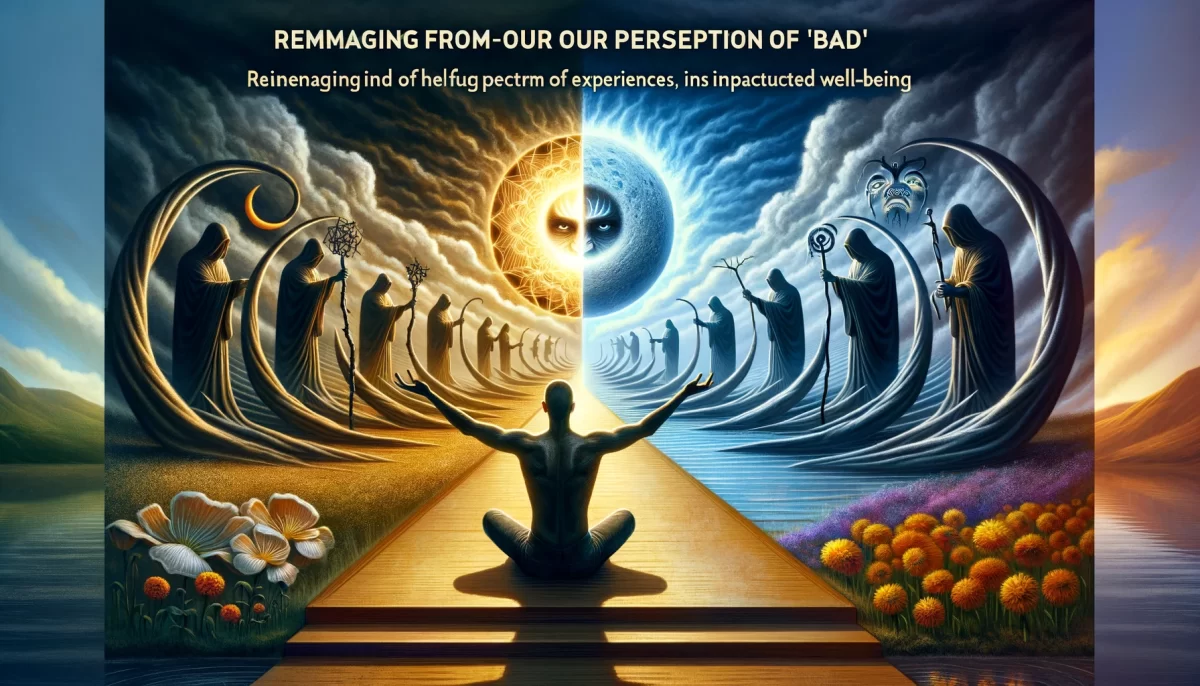

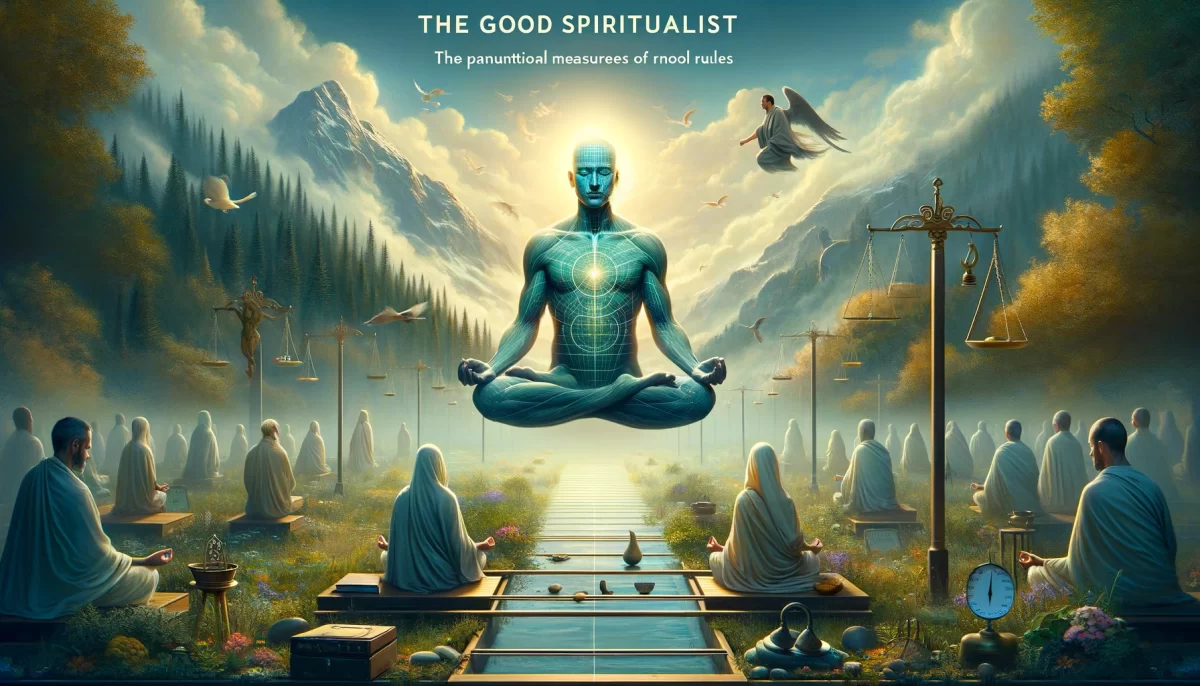
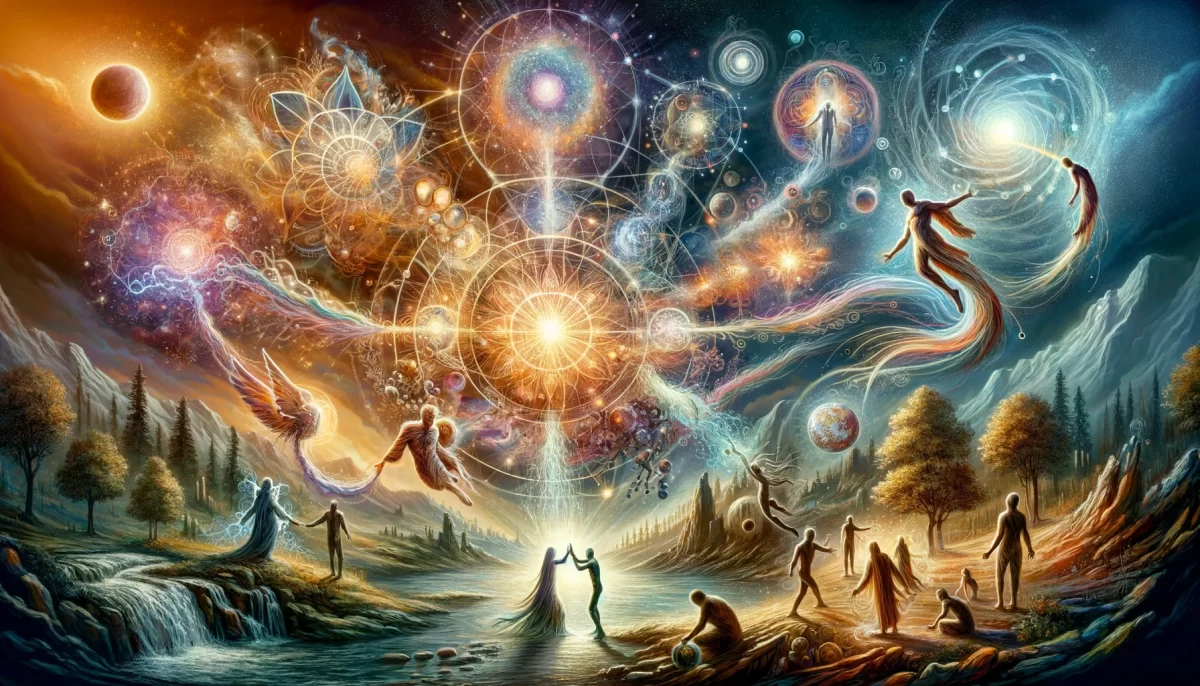


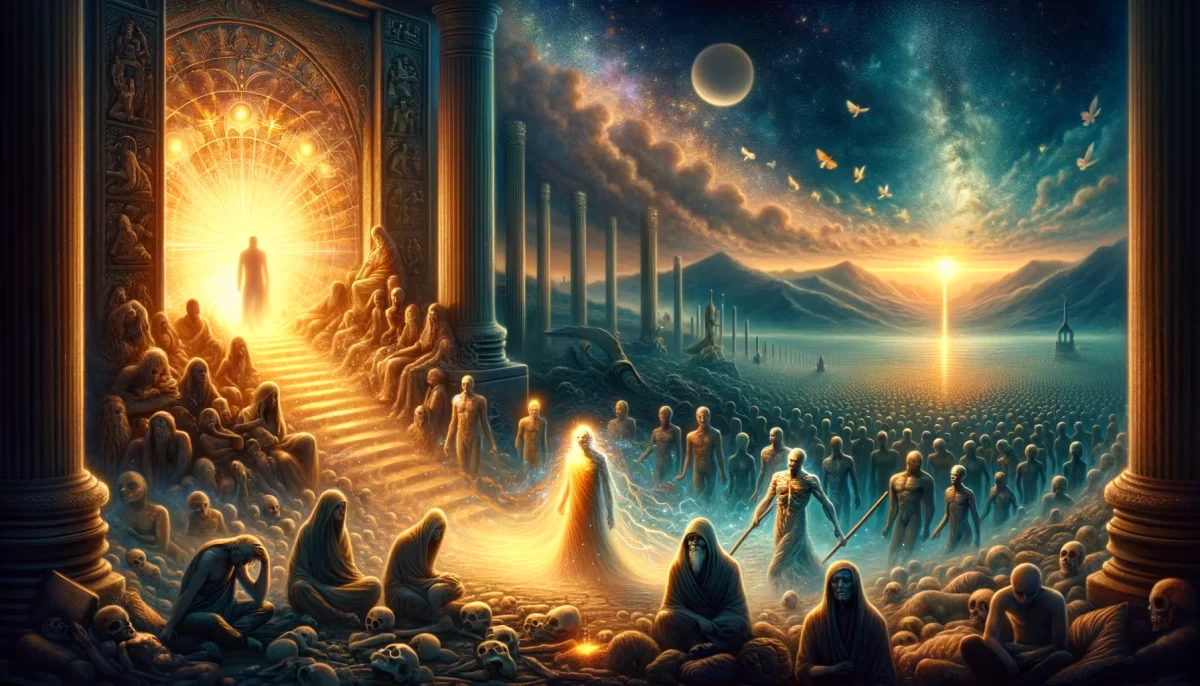


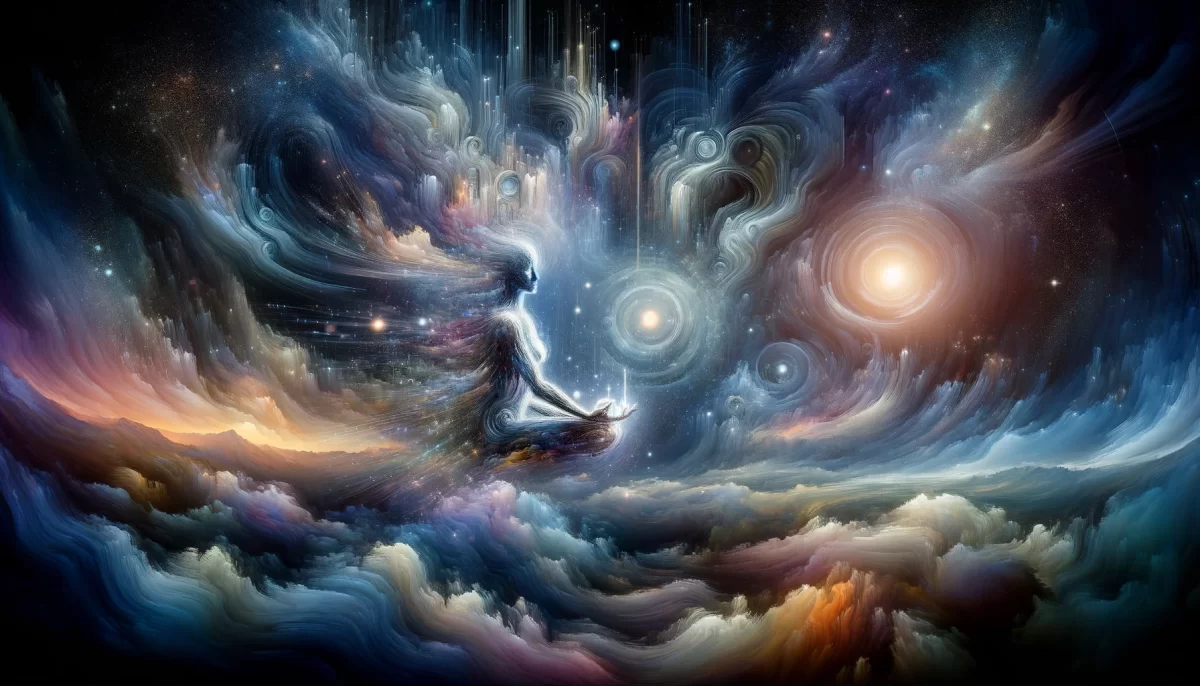
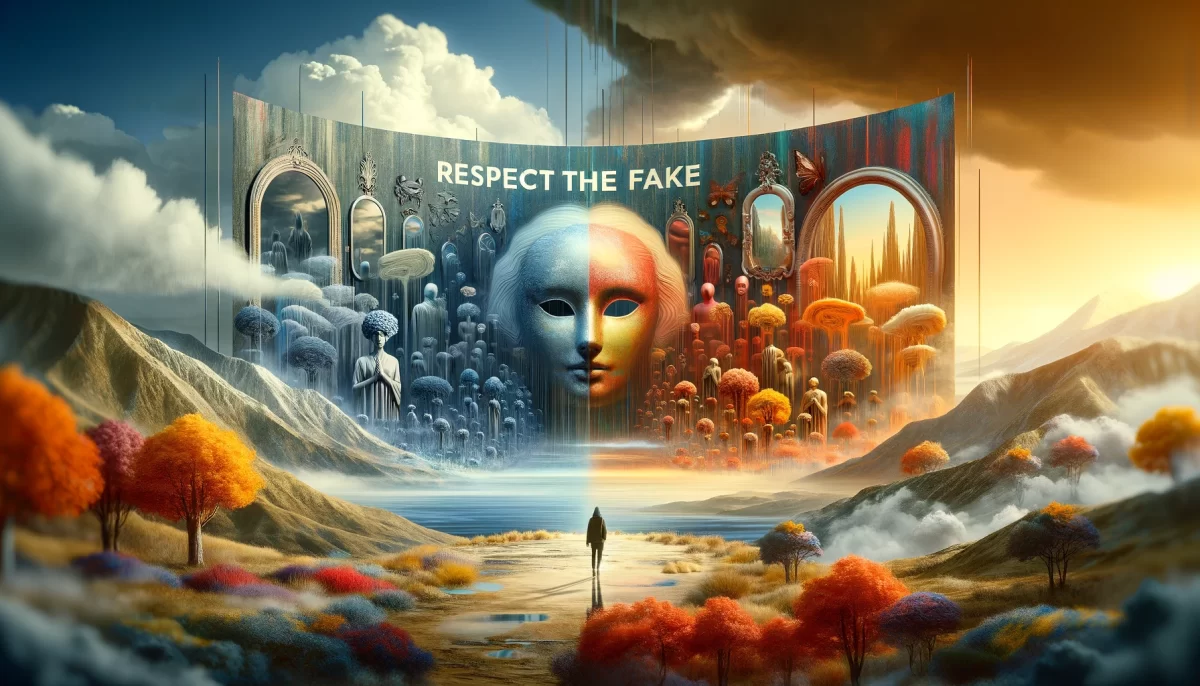
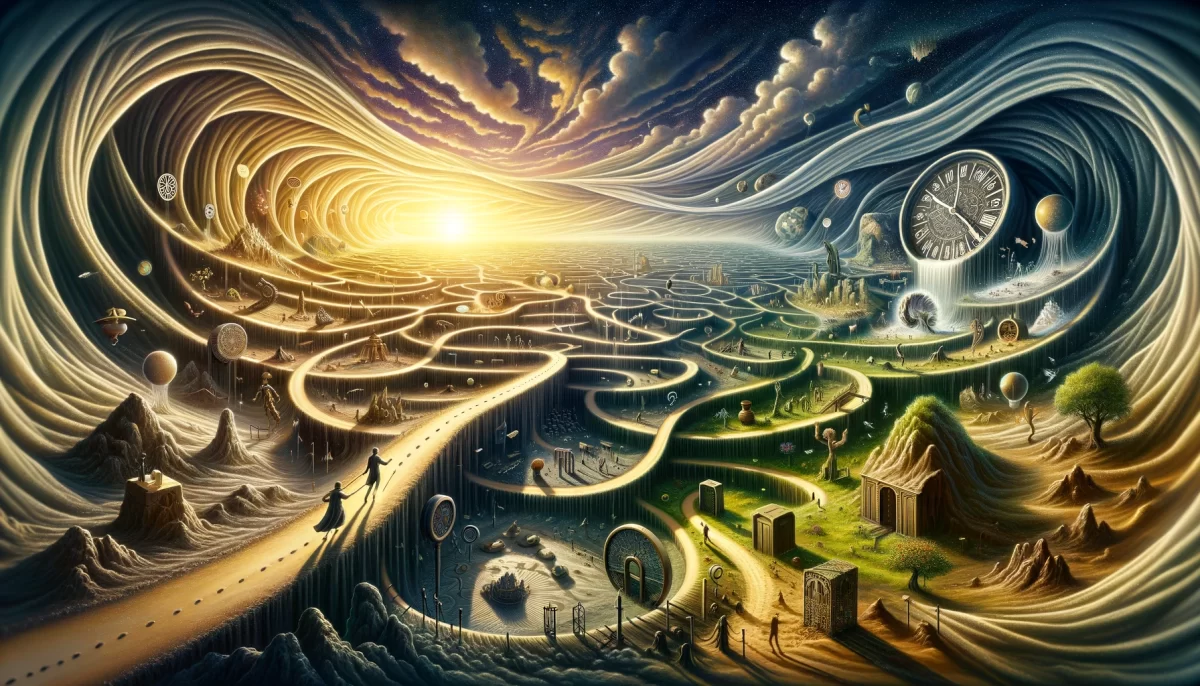

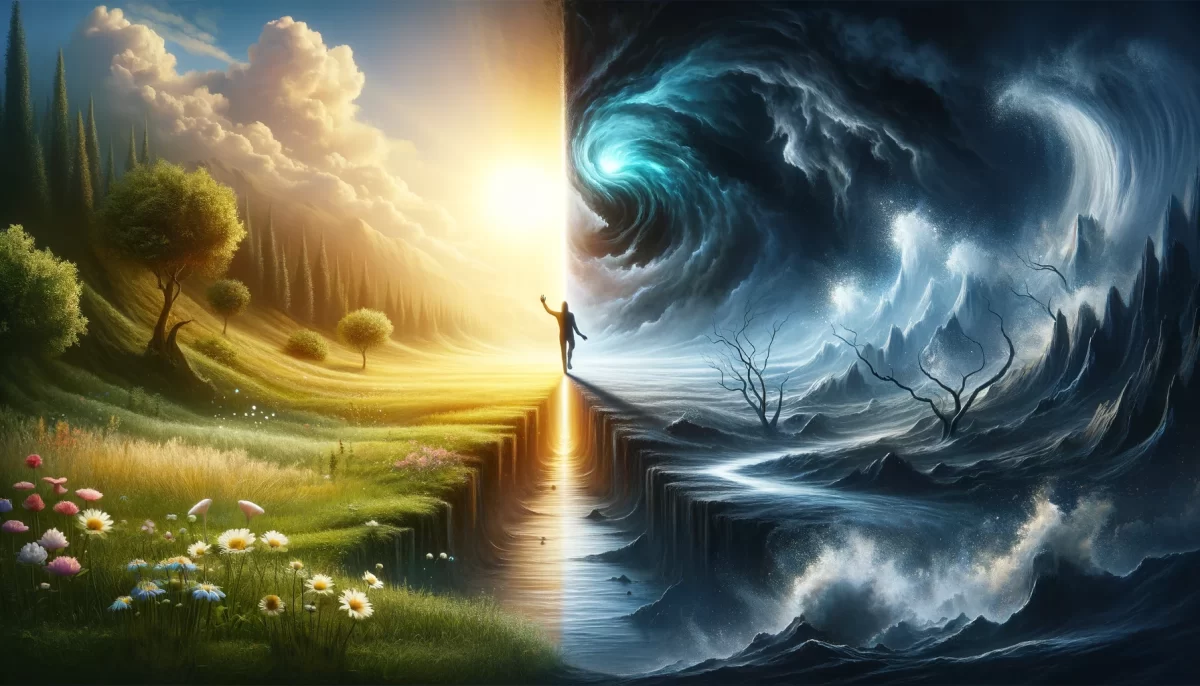

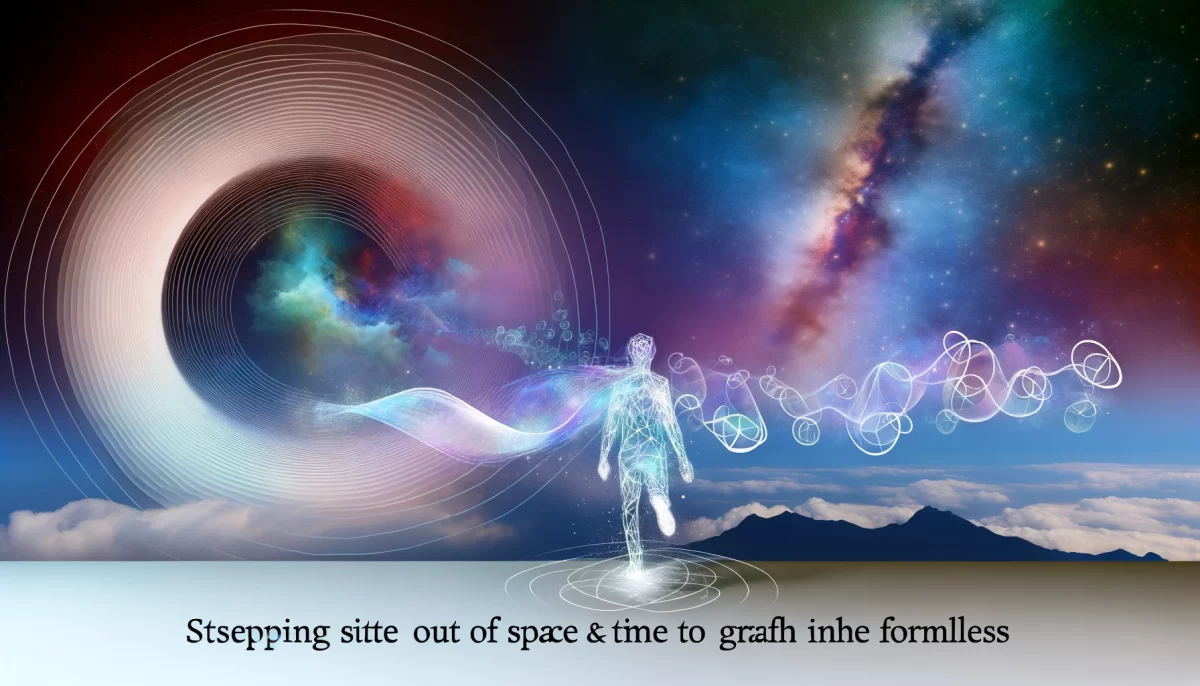
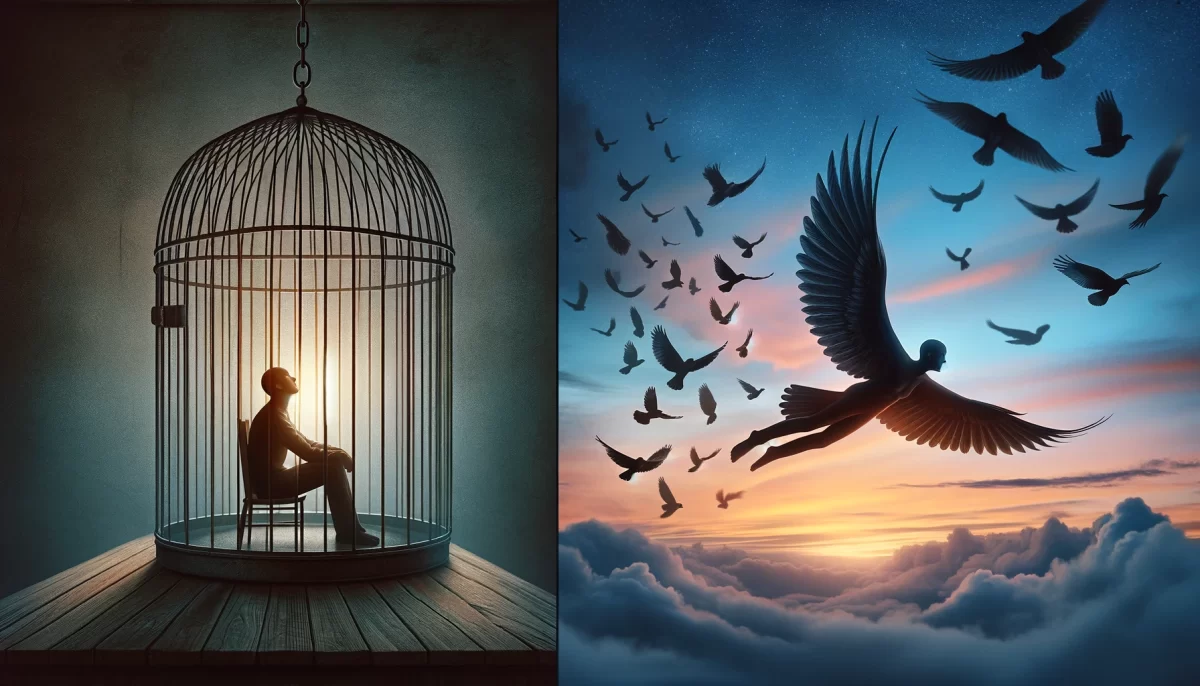

Leave a Reply